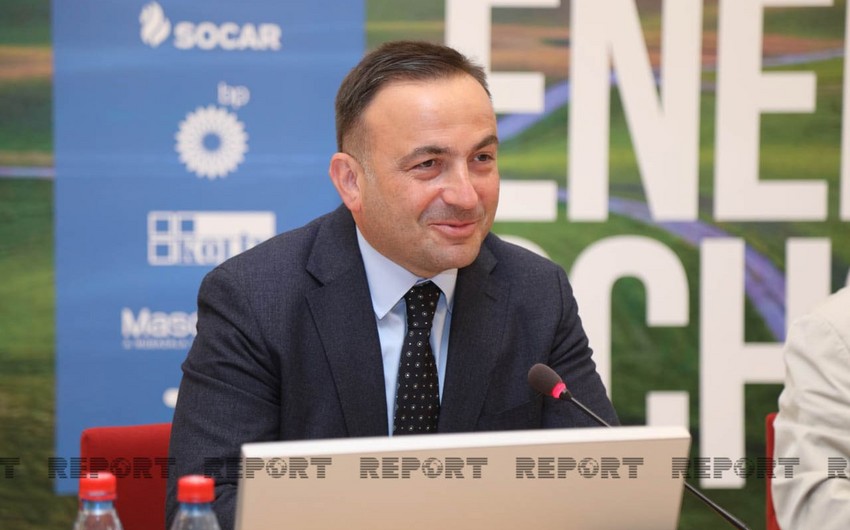The supply of additional natural gas to Europe will bring the region where Azerbaijan is located to a new level, which is a very important factor, said Vice President for the Caspian region, Communications and External Affairs of BP Bakhtiyar Aslanbayli at the opening ceremony of the 16th Baku Summer Energy School, jointly organized by the Institute of Development and Diplomacy (IDD), the State Oil Company (SOCAR), BP Azerbaijan, Colin, Masdar and Total Energies, Report informs.
Bakhtiyar Aslanbayli emphasized that there has been productive cooperation between the BP company and the state of Azerbaijan for 30 years:
"The company implements many large projects in the country. These projects are mostly related to social, educational and environmental protection."
According to him, the Baku Summer Energy School program, rich in speeches by various speakers and experts, will be exciting and valuable for the participants.
Today the President of the European Commission (EC) Ursula von der Leyen and the Commissioner for Energy Affairs of the European Union (EU) Kadri Simson will visit Baku. Within the framework of the visit, the issue of gas supply to Europe will be discussed with the Azerbaijani Government. It is expected that the draft agreement on increasing the supply of Azerbaijani natural gas to Europe, as well as support for the expansion of the Southern Gas Corridor, will be discussed.
Under the agreement, the parties aim to support bilateral natural gas trade, including exports to the European Union through the Southern Gas Corridor, of at least 20 billion cubic meters of gas annually until 2027, according to commercial feasibility and market demand. This involves significant investment in the expansion of the pipeline network of the Southern Gas Corridor.
The EU and Azerbaijan are also expected to explore the development of electricity relations to promote renewable energy and discuss future trade in hydrogen.
The Trans-Adriatic Gas Pipeline (TAP), which transports Azerbaijani natural gas to Europe, has reached its maximum transmission capacity in the last few days: 33 million cubic meters of natural gas per day, which means an annual average of approximately 12 billion cubic meters of gas. Italy receives 10.5 billion cubic meters of these volumes. The long-term goal is to double the pipeline's capacity.


 https://images.report.az/photo/a76040a8-e700-3dd8-ad3f-842dd6798e72.jpg
https://images.report.az/photo/a76040a8-e700-3dd8-ad3f-842dd6798e72.jpg

